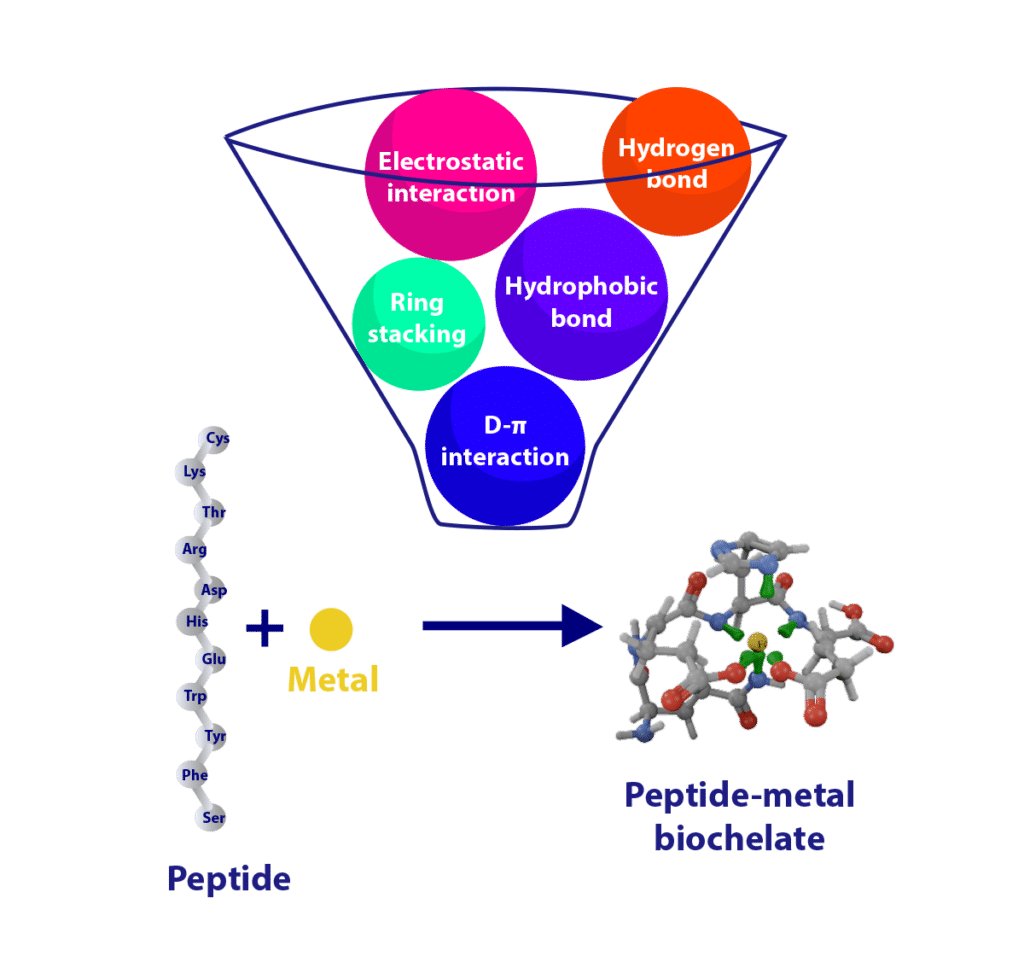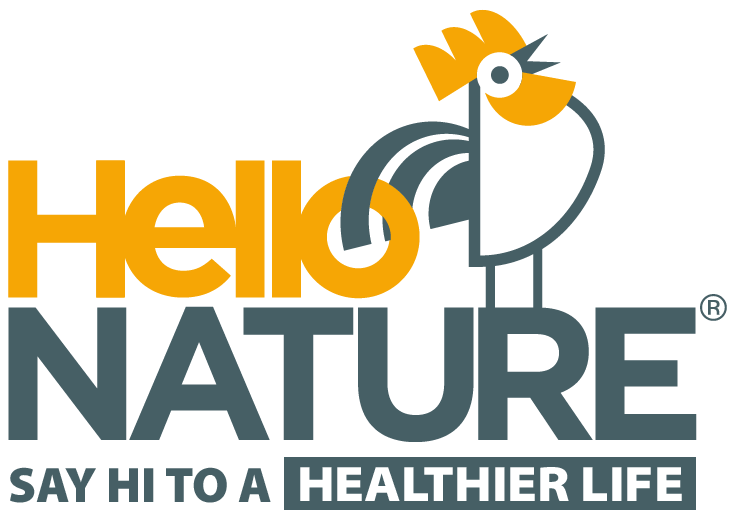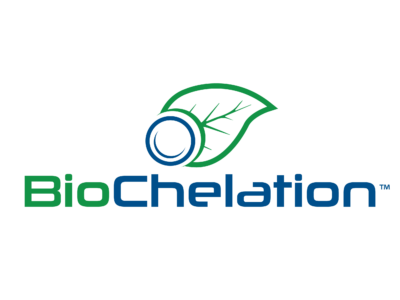Micronutrient deficiency can strongly affect crop productivity and providing micronutrients to the plants is the solution to allow the expression of the maximum productive potential of the crops.
There are different solutions to improve plant’s nutrients uptake but the chelated form is the most efficient way.
A chelating agent is a substance whose molecules can form several links with metal ions in order to:
- Improve its stability
- Make it available for plants uptake
- Protect it from unwanted reactions in the soil and in the plant
Until today micronutrients chelated with synthetic agents such as EDDHA, EDTA has been the preferred choice.
It is based on the intrinsic ability of peptides to behave like synthetic chelates, to form different types of bonds with positively charged metal atoms:
- The “Plant Stimulating Peptides” contain a great number of potential atoms able to form strong bonds with the metal.
- To these bonds, which guarantee the greater stability, is to be added the ability of some side chains of amino acids, forming our peptides, to bind the metal through different types of forces, which contribute to further increase the stability of the peptide-metal bond.
- Thanks to these multiple interactions, the peptides take a 3D dimension, and they organize close to the metal, to form a fence around it and ensuring that the metal atom becomes part of a strong and biologically stable ring structure.
- The resulting structure, called Biochelation™, improves the solubility and bioavailability of the element, which becomes readily available for plant uptake.
The exclusive production process completely managed by HELLO NATURE has been optimized in order to obtain a good chelation effect, while maintaining the integrity of our Plant Stimulating Peptides, preserving also their biostimulant activity.
The Biochelation™ technology introduces on the market the brand-new concept. Compared to traditional synthetic chelation, it is a 100% natural technology, environmentally friendly, harmless to living organisms and respectful of biodiversity, which leaves no residues in the soil or in the crops. Thanks to the presence of vegetal peptides a double action is performed: Biochelation™ and biostimulation. Instead, synthetic chelating agents cannot be used by plants, they are only a carrier of micronutrients. Compared to traditional amino acid complexation the main difference is that the Biochelation™ technology has multiple chelation points, as well as multiple types of interactions, which make the peptide-metal bond stronger than the amino acid-metal complex. The latter is a weak and unstable complex, with only two bonds with the metal.










